This article answers questions like can chicken lay eggs without a male, how do chickens lay eggs without a male and the science behind egg formation.
Can Chickens Lay Eggs Without a Male?
This might sound surprising to those who haven’t raised chickens before. Chickens can actually lay eggs without a male. In fact, most of the eggs you see in stores today are eggs that have no father!
While it is possible for chickens to lay eggs without a male, the eggs they lay are unfertilized eggs. Without mating with a rooster, they cannot lay eggs that will hatch into chicks. So chicks really do need a father, and unfertilized eggs don’t. An unfertilized egg will not develop into a chick or hatch, even if you keep it in an incubator under the right conditions.


So if you are planning on starting an egg farm for egg production alone, you don’t need roosters to keep your hens company. In fact, roosters will only bring unwanted chicks and disrupt your egg production. But roosters serve other important purposes for a flock of hens, like keeping order and protecting them.
For hens to keep laying eggs regularly, they only need a place to nest, safety, and a healthy diet to keep up with their protein and calcium needs.
How Do Chickens Lay Eggs Without a Male?
Chicken can lay eggs without a male because their bodies are programmed to do so. A hen’s body forms an egg every 24 hours, regardless of whether the egg is actively fertilized or not.
Eggs are formed inside the body of a chicken when its ovary releases the egg yolk into the oviduct. The egg develops the egg white and eggshell while in the oviduct. And while the egg is traveling through the oviduct, if the chicken mates with a rooster, her egg will be fertilized.


The eggs that the hen lays will be edible whether or not it is fertilized. They can be eaten fresh hot out of your hen (remember to wash and cook it through first). An unfertilized egg can be eaten up to three weeks after it is laid. But a fertilized egg will not be edible after the chick has started to develop. For an egg to hatch, they have to meet the right thermal conditions with a broody hen or an incubator.
How Do Chickens Lay Eggs Without a Male: The Egg Formation
Chickens ovulate just like women do, but their frequency is different. First, the egg yolks are formed inside the hen’s ovary. The yolk, at this point of development, is called an Oocyte.
After the oocyte is formed, it is released into the hen’s oviduct. The oviduct is more than two feet long. If the hen mates with a rooster at this point, the egg is fertilized. The still-forming egg travels through the oviduct, rotating and slowly developing the egg white and the egg shell. The eggshell is formed in the lower part of the oviduct, and its color develops.
After the eggs are completed passing through the oviduct, it is laid.
The newly laid eggs are now fit for consumption. Please read this article that answers the question of whether a newly laid egg can be eaten. The shell of the egg just laid is very thin and can be broken easily. It begins to harden after some time.
If the egg is fertilized, it has to be left in the care of a broody hen or an incubator for it to hatch. The developing chick draws nutrition from the yolk inside the egg to grow and develop.

To check if your egg is fertilized or not, you can use a process called candling. Candling is a way of examining the eggs against a bright light to check for a developing embryo. Watch this for instructions on how to candle.
How Do Chickens Lay Eggs Without a Male: Summary
Chickens can lay eggs without a male because they are naturally intended to ovulate and form eggs whether or not they mate with a rooster. But all the eggs laid without the help of a rooster are unfertilized. Unfertilized eggs will never hatch into a chick. An egg will be fertilized and has the potential to hatch into a chick only if the hen mates with a rooster.
*All pics are courtesy of Unsplash.com
Egg Pipped: The Birth of New Life and Nature’s Marvels Unveiled in 2023


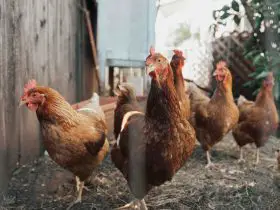

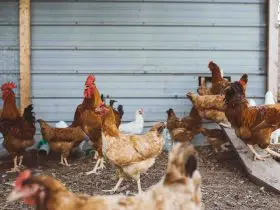
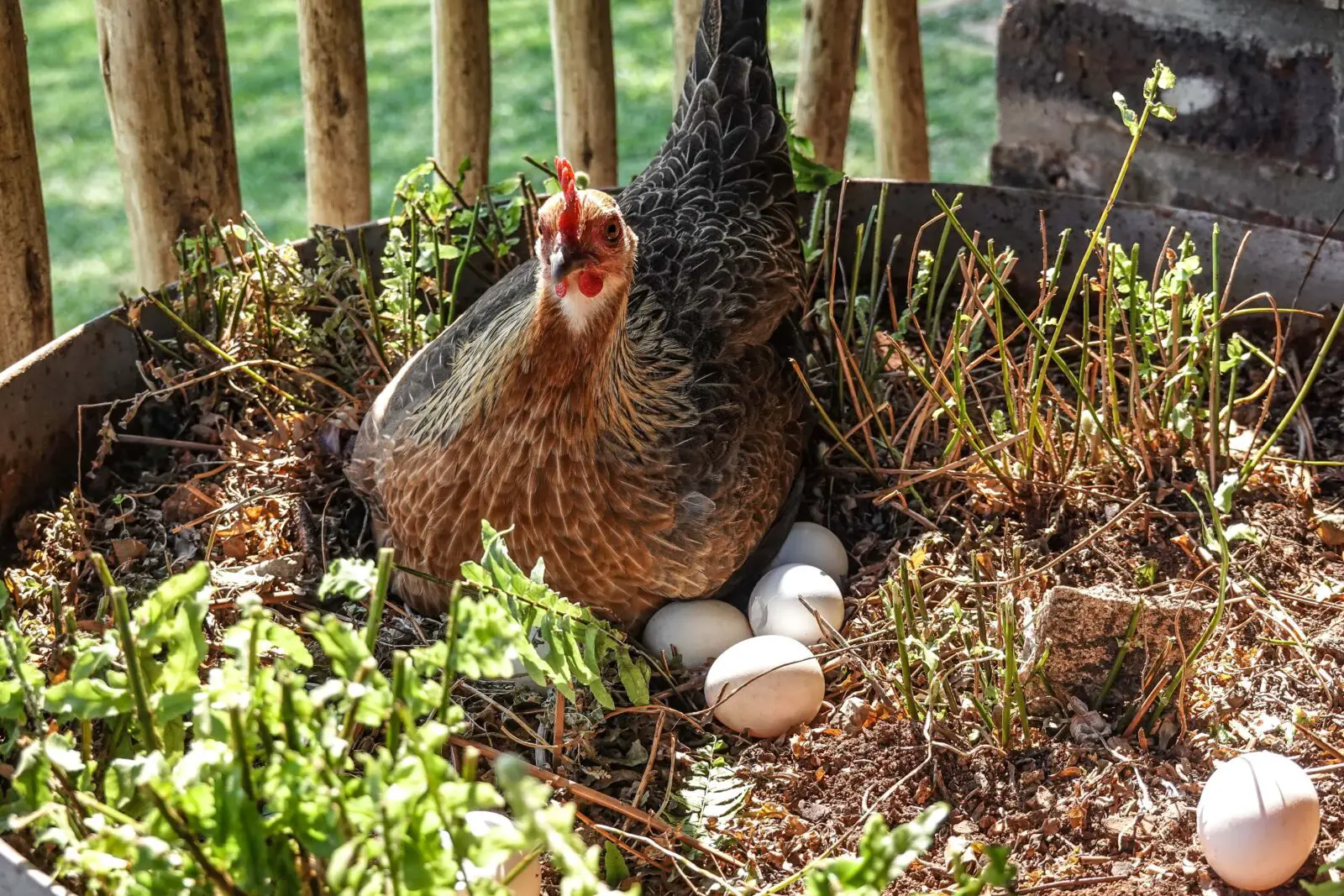

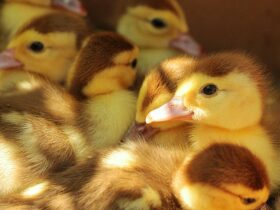
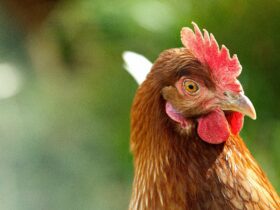

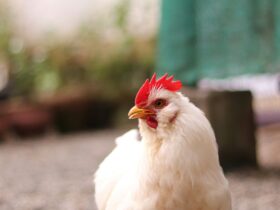

Hello!! Welcome to Anim Farm